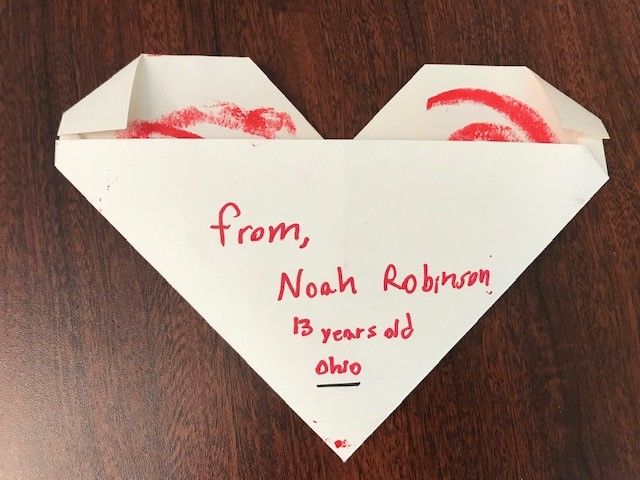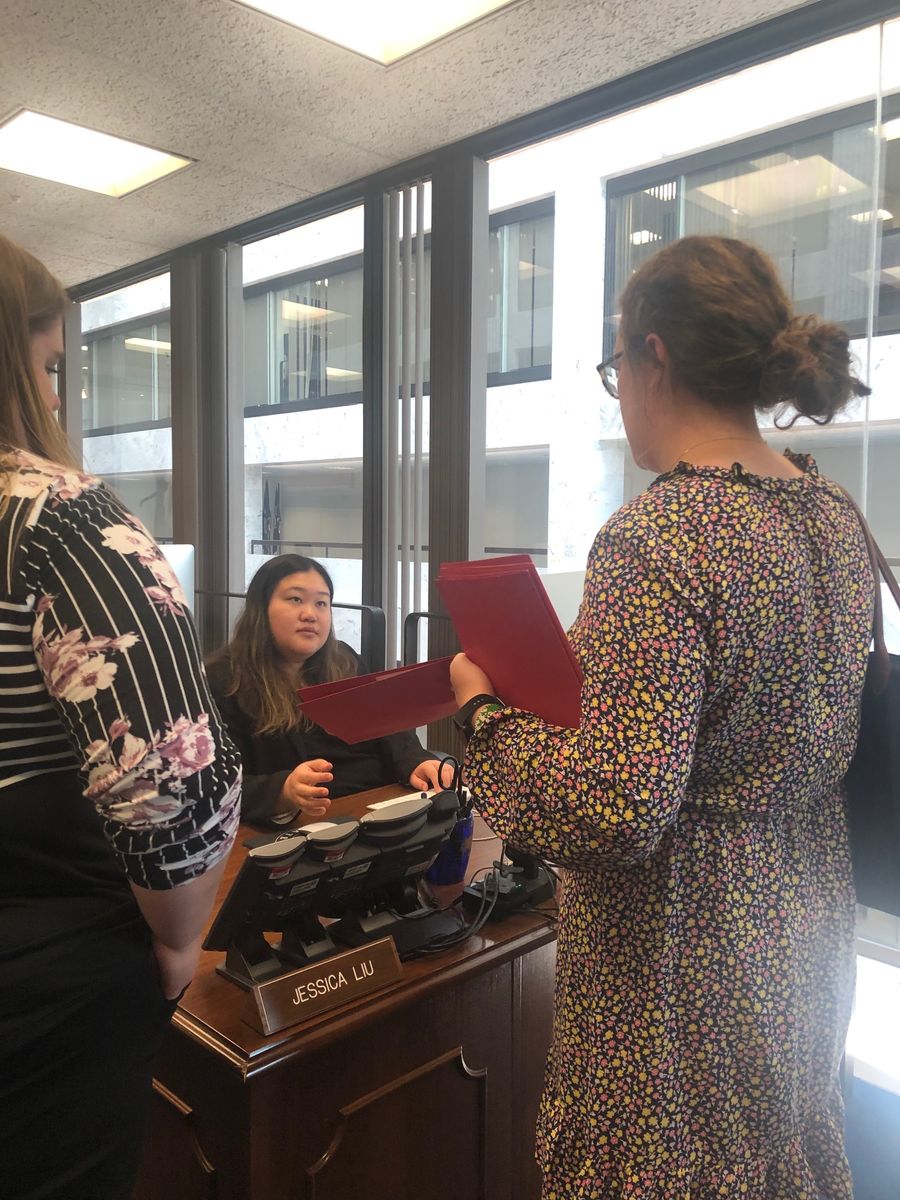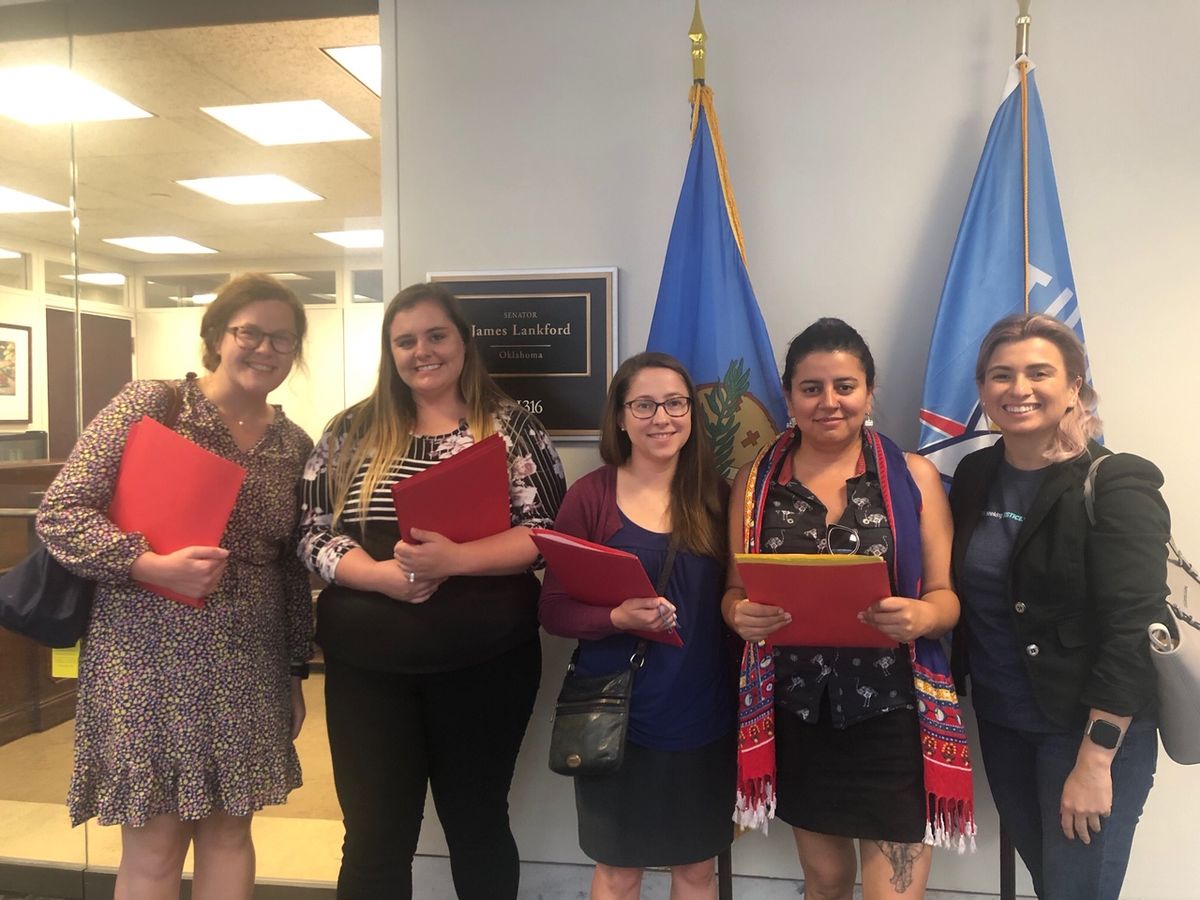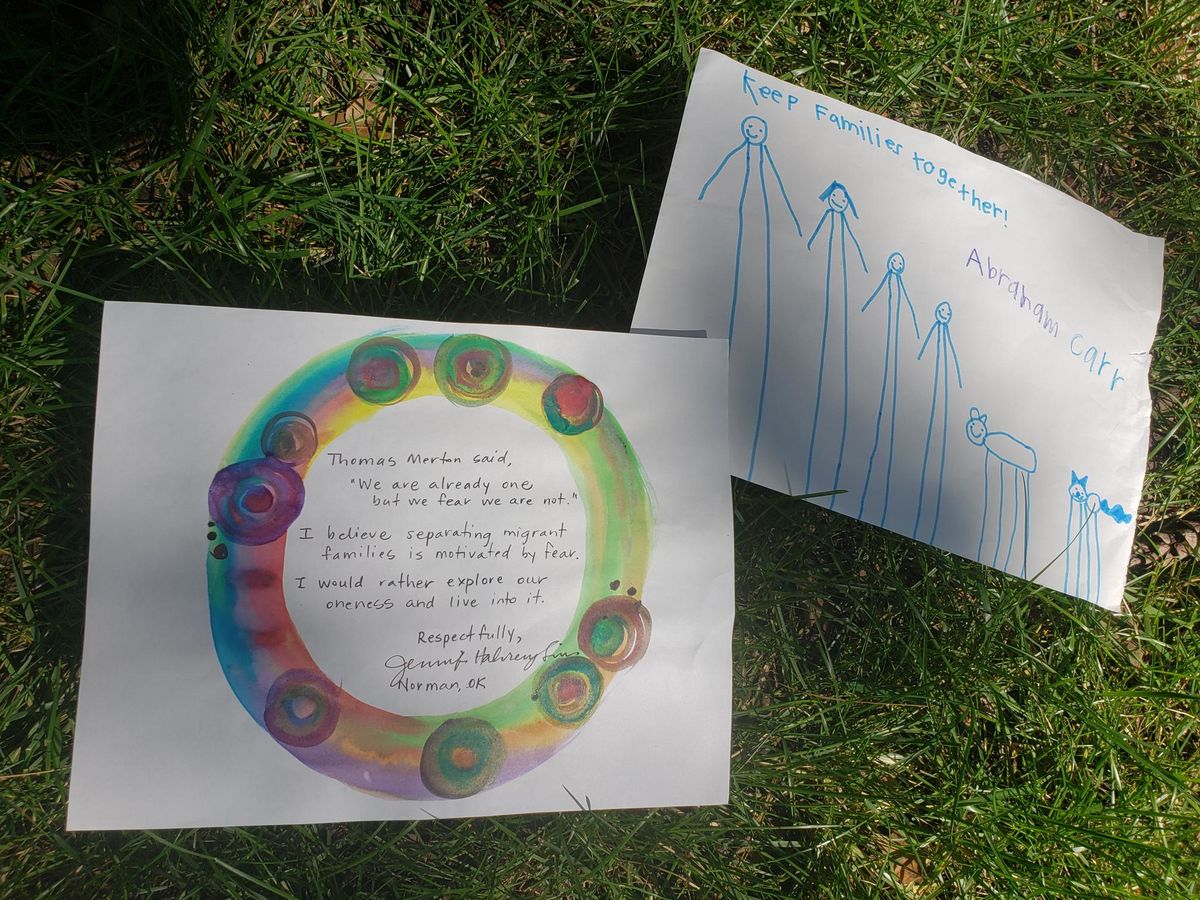United Methodists deliver messages to Congress
United Methodists from 14 states sent Church and Society letters and drawing to hand deliver to members of the U.S. Congress. United Methodists from the Washington, D.C., area hand delivered those notes Thursday.

Approximately 30 United Methodists from the Baltimore-Washington and Virginia annual conferences joined Church and Society Thursday, July 25, to deliver nearly 450 handwritten letters and drawings to members of the U.S. Congress.
The letters, written and drawn by United Methodists of all ages from 14 annual conferences, urge the members of Congress to put an end to child detention, unite immigrant children with their families and prevent other detention centers from opening.

Prior to delivery, a blessing of the letters was held in the Simpson Memorial Chapel of the United Methodist Building.
Bishop LaTrelle Miller Easterling, leader of the Baltimore-Washington Annual Conference, invoked Exodus 9:1 and Matthew 25:35 as she led the group in blessing and praying over the letters. Participants then departed to deliver the letters to members’ offices.
Church and Society invited United Methodists to send emails or write handwritten letters to both President Donald Trump and their members of Congress throughout June and July. Letters could be sent directly or sent to Church and Society for hand delivery.

The delivery of letters came on a crucial date, as July 25 was one of the last days members of Congress were in Washington, D.C., before returning home for the August Recess. Each August, members of Congress spend time in their home districts, meeting with constituents.
Rebecca Cole, director of grassroots organizing for Church and Society, urged United Methodists to meet with their members during the August Recess. “This is a time for United Methodists to hold this administration accountable for its abusive practices,” she said. “We must demand a meaningful humanitarian response that addresses the root causes of displacement and offers U.S. protection to those seeking safety.”
Cole offered two resources for United Methodists who wanted to engage their members of Congress.
She suggested that United Methodists should look to the United Methodist Social Principles for inspiration. The Social Principles, adopted by the General Conference of The United Methodist Church, are the official position of the denomination on several topics of social concern. Paragraph 162.H states, “We oppose immigration policies that separate family members from each other or that include detention of families with children, and we call on local churches to be in ministry with immigrant families.” (Social Principles, ¶162.H)
Cole then offered “Creating Change Together,” a faith-based, civic engagement toolkit created by Church and Society, which includes a how-to section on scheduling and planning meetings with decision makers. “Creating Change Together” can be found on Church and Society’s website at www.umcjustice.org/toolkit.
